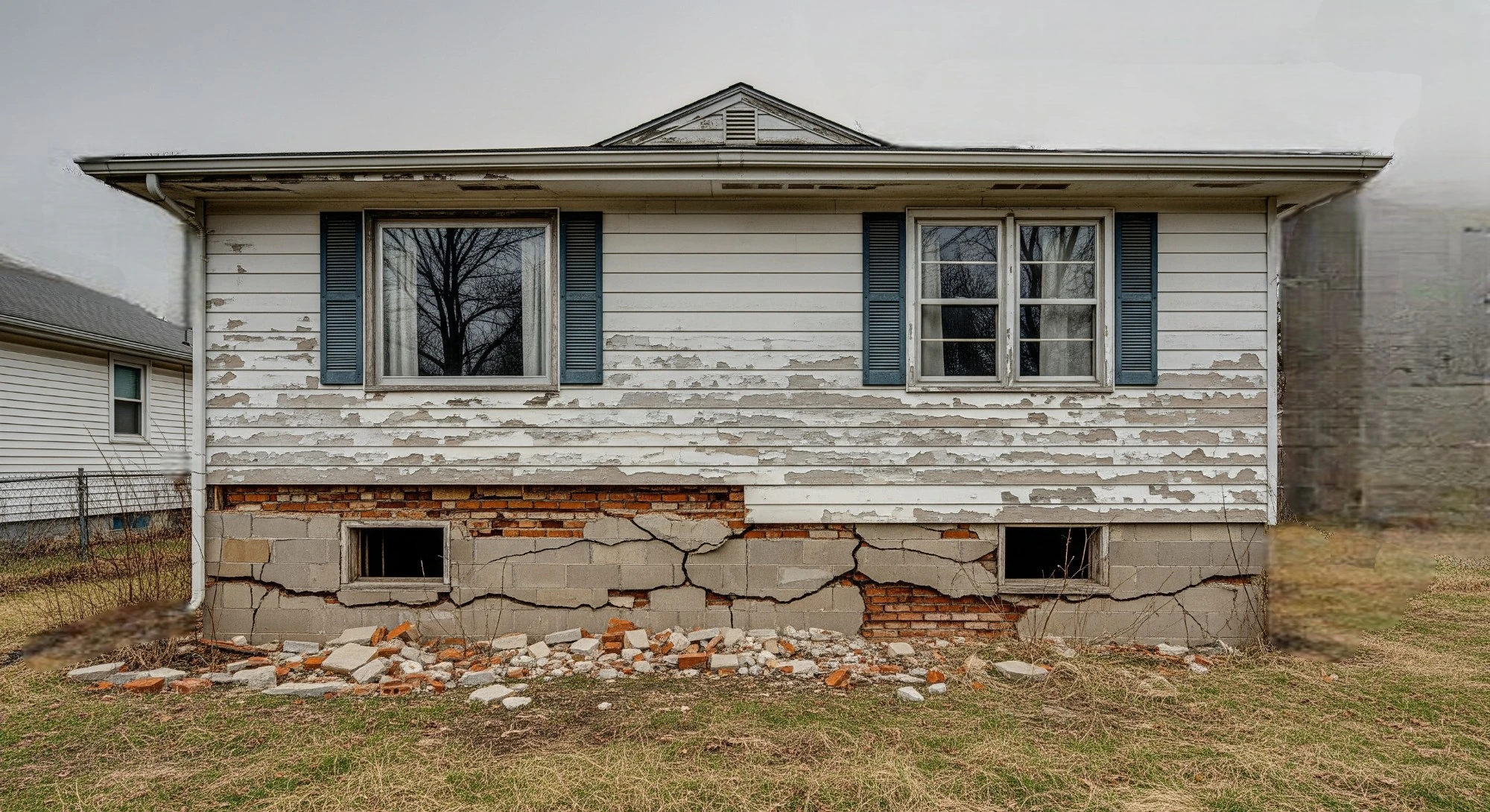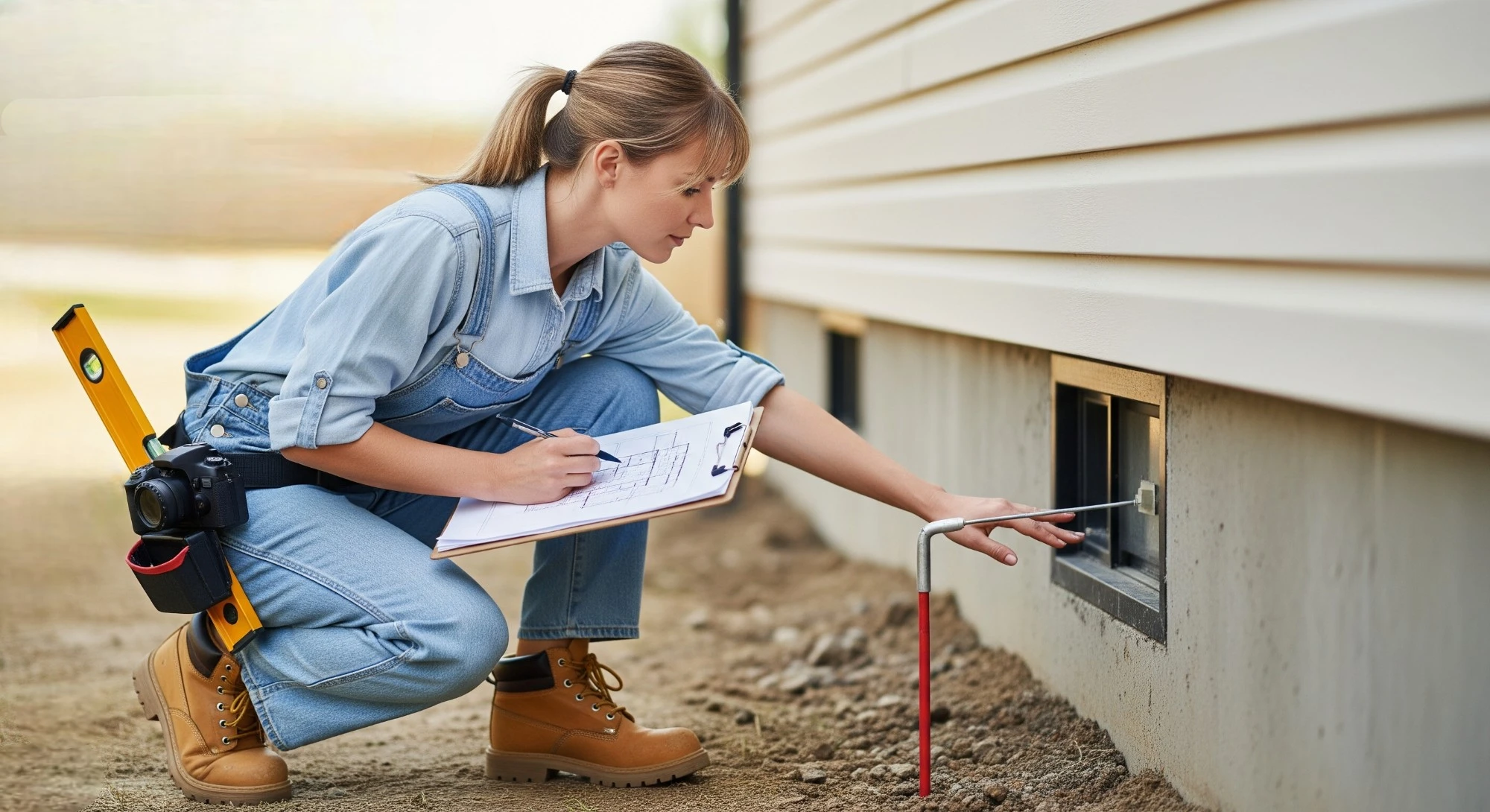
Time is money. And nothing makes a buyer pause like a home that’s clearly still waiting on a to-do list. A cracked foundation, a musty basement, or peeling paint can say a lot, none of it good. Once trust starts slipping, so does the perceived value.
The sellers who stay ahead of this? They knock out the critical repairs early such as foundation repair, HVAC and plumbing issues, basement waterproofing, and possible flood damage restoration. No drama during inspections. No back-and-forth over credits. Just stronger offers and smoother closings.
This guide lays out which repairs matter most, how to prioritize without guesswork, and why having a professional on your side can make all the difference when it’s time to close.
Why Repairs Matter Way More Than You Think

Getting a home ready to sell isn’t just about throwing on a fresh coat of paint and lighting a few candles before the open house. If there are cracks in the walls or a soft spot in the floor, buyers notice and those red flags don’t just stay in their heads, they show up in offers (or the lack of them).
Every scratch, leak, or outdated system invites more questions. More questions lead to longer inspections. And longer inspections? Usually mean slower sales, tighter negotiations, or deals that fall apart at the finish line.
When a home feels cared for, buyers pick up on it instantly. It tells them the place wasn’t just lived in, it was loved. And that makes writing a serious offer feel a whole lot less risky.
It All Starts at the Curb
The moment someone pulls up outside, the mental checklist begins. And it’s quick. We found that curb appeal can swing a sale price by as much as 9%. That’s no small change.
So if the walkway’s cracked or the bushes haven’t seen a trim since last spring, buyers notice. Their brains start doing the math: “If the outside looks like this, what’s waiting inside?”
Those first impressions matter because they quietly shape the way buyers interpret everything that comes after. A tidy yard and a solid front step might not seal the deal, but they make it a lot easier to walk in with confidence instead of caution.
Inspections and Appraisals: The Real Deal-Breakers
Buyers might fall for crown molding and fresh tile, but inspectors and appraisers? They’re not swayed by good lighting. Their job is to dig deep behind the walls, under the floors, inside the crawlspace.
And when buyers find moisture damage or signs of structural trouble, things can shift quickly. Issues like these almost always lower the value, which can result in price cuts, re-negotiations, or, in the worst case, a buyer who walks away.
Taking care of problems before they show up on a report doesn’t just help the house look better, it keeps the deal on track. No last-minute scrambling. No stressed-out phone calls. Just steady momentum toward the closing table.
Faster Sales, Higher Offers
There’s something about a home that feels done. No to-do lists. No “we’ll fix it later.” Just unpack and live. And buyers? They love that feeling. Zillow’s 2024 Consumer Housing Trends Report found that people are willing to pay up to 4% more for a move-in-ready home. On an average house, that’s around $14,000, not exactly pocket change.
But it works both ways. Homes that need obvious repairs? They tend to sell for up to 8% less. That’s a lot of money left on the table and it usually means fewer offers, more hesitation, and more time sitting on the market.
So if the goal is to sell fast and walk away with a solid return, a little up-front effort can make a seriously big difference.
The Repairs Buyers Spot First and Talk About Later

Every home has its own personality. some charming, some… complicated. But there’s a short list of repairs that buyers, inspectors, and appraisers all notice right away. Skip them, and the red flags pile up. Handle them early, and suddenly the place feels solid, safe, and ready for someone new to move in.
Foundation Fixes That Actually Set the Stage
If the floors feel a little wonky, the doors don’t shut quite right, or there’s a crack running down the brick outside buyers notice. These are classic signs of foundation movement. And foundation issues are one of the top five deal-breakers in a home sale.
Getting a pro in to evaluate and repair the foundation does more than solve a structural headache. It shows buyers (and their lenders) that the serious stuff has been handled. Add documentation to the mix, and it’s one less reason for anyone to back out later.
Basement Waterproofing
Basements can be sneaky. That white powdery stuff on the walls? It’s called efflorescence, and it usually means water has been coming and going for a while. Throw in some discoloration or a musty smell, and buyers start imagining the worst: mold, flooding, long-term moisture damage.
Basement waterproofing isn’t just about sealing cracks. Done right, it protects the whole space, keeps future problems out, and reassures buyers that the home has been taken care of from the ground up.
Water Damage Needs More Than Paint
Not all water damage is obvious. A small leak from years ago can hide behind fresh drywall. A flooded basement might smell fine now, but the subfloors could still be warped or moldy underneath. Cosmetic cover-ups won’t cut it.
That’s where real restoration pros come in. They’ve got the tools to track hidden moisture and the know-how to get rid of the damage for good. Having that work documented? It can turn a potential deal-breaker into a confident yes.
A Roof That’s Ready and Gutters That Don’t Overflow
It doesn’t take a leak to make buyers nervous. Sometimes, just spotting a few curled shingles or overflowing gutters is enough to get them thinking about future repair bills. And honestly? They’re not wrong.
The National Association of Realtors says roof condition is high on the list of buyer concerns. Luckily, it doesn’t take much to get ahead of it. A quick gutter clean-out, a few shingle repairs, maybe some new flashing and suddenly, the house reads as “well maintained” instead of “uh oh.” It’s a low-cost way to show buyers this home’s been taken care of from top to bottom.
HVAC and Plumbing: Quiet Systems, Happy Buyers
It’s hard to feel good about a house if the faucet hisses or the bedroom’s freezing while the living room’s roasting. HVAC and plumbing issues send up big red flags, even if the fixes are small.
The most HVAC repairs cost under $500, which is peanuts compared to how much value can get shaved off in a buyer’s offer. A professional once-over can sort out weak water pressure, sluggish drains, and inconsistent temps fast. And once that’s done, buyers feel a whole lot better about the guts of the house working like they should.
Where to Start and Why It Matters

Here’s the truth: not everything has to be perfect before you list your home. But some issues, like cracks in the foundation or signs of moisture, carry a lot more weight than others. That’s why the smartest sellers don’t try to fix everything. They fix what matters most.
Foundation problems and water issues are the two big ones
A sagging beam or cracked exterior wall isn’t just a cosmetic concern, it’s a red flag for buyers, inspectors, and lenders alike. The same goes for musty basements and signs of mold. These problems feel serious, because they are. And if left unaddressed, they can derail deals fast.
Fixing these first tells buyers the hard stuff’s already been handled. It also helps eliminate the mental checklist of “what else could be wrong,” which makes your home feel safer, more trustworthy, and worth the offer.
Choosing Trusted Local Professionals
There’s DIY, and then there’s don’t even try. When it comes to structural or water-related issues, like flood damage restoration, buyers and lenders both want receipts. That means licensed contractors, real documentation, and work that comes with warranties and follow-up if anything goes sideways.
Not only does this earn buyer trust, it becomes a built-in selling point. “Handled by [local reputable company]” sounds a lot better than “we patched it ourselves.” When you lean on local pros with proven track records, the house doesn’t just show better, it sells better.
Selling Smart Means Removing Doubt
Price matters, sure. But confidence is what really seals the deal. Buyers want to feel like they’re stepping into something solid, something that’s been cared for, not just cleaned up.
When sellers put real effort into key repairs like the foundation, water issues, HVAC, and more. It tells buyers this isn’t just a house. It’s a place that’s been looked after. And that leads to faster decisions, fewer negotiations, and way less stress all around.
Because in the end, selling smart is about fixing what matters and letting the rest speak for itself.



